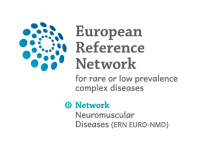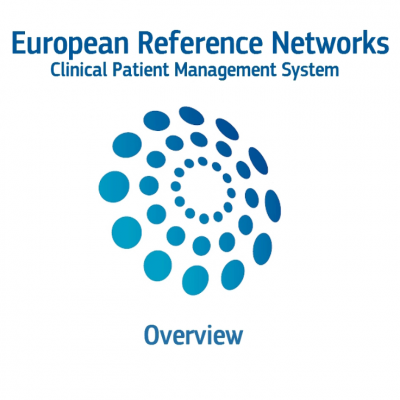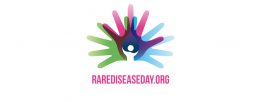|
| |
A report from our second annual meeting

| |
Key network stakeholders and those interested in our network's progress and future plans met for our second annual meeting in Prague, Czech Republic.
Before the start of the meeting itself members from each of our specialised working groups had a chance to meet in person, to discuss issues and future plans and also to build upon those all important working relationships.
The first session of the main meeting was entitled "What's new in the field of NMD" and touched upon the diagnosis of CMS, treatment opportunities for both neuropathies and mitochondrial diseases as well patient trial selection in clinical trials.
The second session featured six specific patient case. Similar to our CPMS but with people physically present, anonymised patient information was discussed with delegates in an attempt to move forward with regards to potential diagnosis and/or treatment.
Session three began on the second day with a further look at the very latest news in the neuromuscular field. This included a presentation of the results of our recent genetic testing survey. The challenges and chances for neuromuscular diseases in MR Neurography and the role of electrophsiology in the diangnosis of Guillain-Barré disease followed. The session finished with a look at new immunohistochemical techiniques for routine muscle biospy diagnostics.
Session four, "From Bench to Bedside" took delegates from the re-analysis of omics data though to non-invasive diagnosis and on to E-health and the new perspectives in research.
The final session of the meeting was called, "From ethics to education and the PAB (Patient Advisory Board) views." This final session focussed on the PAB perspective for EURO-NMD, the ethics within the network and concluded with a presentation on education.
A practical CPMS demonstration was given and hands-on one-to-one help was available at times throughout the meeting.
We were delighted with the range and depth of discussions throughout the two day meeting and hope attendees found their time in Prague was beneficial.
If you would like to find out more about the meeting and who the speakers were, you can still download an archive of the agenda.
|
|
|
|
|
| |
Using the Clinical Patient Management System (CPMS)
The Clinical Patient Management System (CPMS) is a web-based clinical software application providing a secure platform which aims to support ERNs in improving the diagnosis and treatment of rare or low prevalence complex diseases across national borders of Member States in Europe.
To ensure the CPMS delivers the maximum positive impact possible for those in the neuromuscular community we have developed a simple 'how to' guide which we hope will answer many of the questions that may arise when first using the system.
We also have a set up a dedicated helpdesk to address any issues that may arise. So, if you have any questions about accessing or using the CPMS please send them to support@ern-euro-nmd.eu
|
|
|
|
|
| |
Theme for Rare Disease Day 2019 announced!
The theme for Rare Disease Day 2019 is 'Bridging health and social care'. For most people living with a rare disease, as well as their family members or carers, the reality of daily life can include any combination of the following: collecting and taking medicines, attending appointments, participating in physical therapy, using specialist equipment and accessing various social and community support services and respite care. Managing these care-related tasks alongside their usual daily activities such as work, school and leisure time can be challenging.
|
|
|
|
|
| |
European Reference Network: Clinical Practice Guidelines (CPG) and other Clinical Decision Support Tools (CDSTs)
The overall purpose of this call for tender is to provide assistance to the commission to support the ERNs and their healthcare providers in the process of development, appraisal and implementation of Clinical Practice Guidelines (CPG) and other Clinical Decision Support Tools (CDSTs) taking in account the objectives and criteria set under the framework of…
|
|
|
|
|
|
| |
CTSR highlight
An international consulting firm, recently requested information from the TREAT-NMD Care and Trial Site Registry on sites in France, Germany, Italy, Spain and the United Kingdom regularly seeing spinal muscular atrophy patients as well as information on the site such as the number of SMA patients regularly seen, the availability of genetic testing and pulmonary, muscle and bone health tests, facilities, specialists and (co)authorship on clinical research papers. Screening the Care and Trial Site Registry, we named 116 sites meeting the criteria requested by them. We provided only the name of the institutes but no personal contact data.
We would like to thank you again for providing your data for the TREAT-NMD Care and Trial Site Registry (CTSR) and allowing us to use the data for this enquiry. If you have any comments or suggestions about the way the CTSR works, please do not hesitate to contact us.
|
|
|
|
| |
Mitochondrial medicine 30 years on: state of the art
Mitochondrial diseases are an important group of inherited metabolic disorders affecting children and adults, with an extremely wide range of clinical symptoms and an ever increasing number of genetic causes.
This three day training course which begins on 11th April in Nice, France. The €450 course fees cover all course materials, food and accommodation ofr two nights. Registration deadline is 1st March 2019.
|
|
|
|
|
| |
European collaboration on e-health and cross-border care
At the informal meeting of health ministers in Vienna on 10-11 September 2018, discussions focused on orphan drugs for rare diseases, the use of modern electronic communications in the health sector and investment in digital health.
Particular focus was placed on examining four fields of action from different perspectives: optimisation of the exchange of information, strengthening of patient benefit, European-wide availability of newly approved drugs and the approval of drugs with orphan labelling. The exchange of opinions was especially centred on potential measures aimed at ensuring the long-term and sustainable supply of such medicines to European patients.
|
|
|
|
| |
First Indian centre for children with neuromuscular diseases opens in Bangalore
Bangalore Baptist Hospital in association with ORDI – Organization For Rare Diseases, India, inaugurated India’s very first Paediatric Neuromuscular Service, simply called “The Muscle and Nerve Clinic”.
This specialty service has a range of specialists who have come together to provide care for patients who suffer from these rare diseases that affects the muscle and nerves, thus causing weakness.
This service was set up with the goal of providing holistic and multidisciplinary care and treatment under one roof, for children and families with these rare group of disorders, who often need support from multiple experts in various specialities. In other words, the aim is to do away with the typical phenomenon that families with rare diseases end up going through, that of having to run from pillar to post, in their quest for appropriate solutions.
|
|
|
|
|
| |
229th ENMC international workshop: Limb girdle muscular dystrophies – Nomenclature and reformed classification
Workshop report highlights
A consensus was reached on an updated definition of LGMD, and current sub-types were evaluated by application of the updated definition.- Consensus was reached on the most useful LGMD classification system that also allowed space for further discoveries of new sub-types.
- Potential ramifications of the new definition and classification of LGMD for patients were discussed and several action points around how to disseminate this proposal were identified.
IntroductionHistorically, the classification and nomenclature of diseases has not been systematic and diseases were either classified by cause, presenting symptoms and signs, pathological features and organs involved, or they were named after the experts that first described them. An improved understanding of pathomechanisms, the identification of disease genes and an increase in the number of distinct disease entities led to nosological coding systems that are regularly updated and revised. On the one hand, there is a real need to revisit the nomenclature and classification systems of diseases and to update them according to new findings and coding standards; on the other hand, a change in disease names can be confusing for healthcare professionals and affected patients. |
|
|
|
| |
Best wishes for Christmas and the New Year
This is our final newsletter of 2018 and we would like to take this opportunity to wish you all a very Happy Christmas!
We would also like to thank everyone involve in our network for their hard work thoughout 2018.
We really enjoyed meeting many of you in Prague and look forward to working with you in 2019. We would also like to say a fond farewell to Joanna Das who has made such a difference to the network over the last year and wish her all the very best in her new position.
All the very best for the coming New Year,
EURO-NMD Secretariat
|
|
|
|
|







